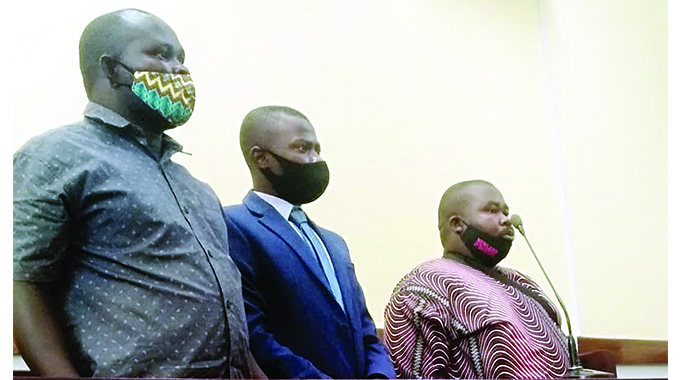COMMENT: Silver lining behind Covid-19 dark cloud

The Covid-19 pandemic has been a huge public health disaster which adversely impacted the economy while causing thousands of citizens to be sick and more than 1 500 deaths.
However, the crisis has spawned a few positives. One of them is that it pushed the Government and its partners to adopt an emergency mode to invest a lot of resources in upgrading health facilities.
In Bulawayo, Ekusileni Medical Centre, a white elephant for almost 20 years, has undergone extensive rehabilitation and is now set for reopening in the next few days. It will have 50 beds for patients with mild to severe Covid-19 symptoms.
Across the city to the west, the condition of Thorngrove Infectious Diseases Hospital was so depressing that few could imagine that the facility was built to actually save lives. Before Covid-19 hit, infrastructure at the hospital was falling apart with broken furniture and mounds of old, uncollected dirt strewn all over. Covid-19 moved the Government to designate the hospital a treatment centre for people infected with the coronavirus, which necessitated much investment to get the infrastructure up to standard.
Now, the former depressing facility is able to speak life.
Also in Bulawayo, the Old Bartley Memorial Block which is within the United Bulawayo Hospitals has been spruced up to treat Covid-19 patients as well.
“Government is pleased to announce that Ekusileni Medical Centre has been fully refurbished and will soon be officially opened,” said the Minister of Information, Publicity and Broadcasting Services Monica Mutsvangwa in her post-Cabinet briefing Tuesday.
“Thorngrove Hospital was refurbished and upgraded to a 28-bed fully equipped Covid-19 isolation centre and is admitting Covid-19 patients. The first-ever free orthopaedic paediatric hospital and Covid-19 Isolation Centre based at United Bulawayo Hospitals is also set to be soon officially opened. The hospital will attend to children with various orthopaedic conditions, including those with congenital deformities from all over the country.”
Many more health centres in Harare, Gweru, Masvingo, Mutare and Kwekwe among other cities have undergone impressive renovations over the past 12 months.
We are still in the grip of the pandemic, hopeful that positive behaviour change by citizens and the ongoing vaccination campaign will cover all who must get the jab but we are certain that the investment that was pumped into renewing local facilities since March last year will be of much benefit post-Covid-19.
Ekusileni should not shut down again even after Covid-19 is contained. The National University of Science and Technology (Nust) was last year roped in to use the hospital as a specialist research and training hub for its medicine classes.
That means an expanded mandate from just handling 50 Covid-19 patients to being a full-fledged research and training facility. Much more investment is therefore required. The Nust plan should materialise so that Ekusileni offers services it is meant to offer.
Bulawayo City Council had, as indicated, left Thorngrove to decay before Covid-19.
However, the Government moved in to get it working again. Like Ekusileni, Thorngrove and other health facilities across the country that were renovated on emergency basis to handle Covid-19 must outlast the pandemic. They must work like health facilities, with well-maintained physical infrastructure, adequate drugs, equipment and staff.
Africa is importing all its Covid-19 vaccines. The small portion that is manufactured on the continent is made by Western pharmaceutical companies.
However, experts participating in a virtual conference organised by the African Union and the Africa Centres for Disease Control on the continent’s vaccine manufacturing for health security earlier this month emphasised the need for governments to work together towards making vaccines, not just against Covid-19 but also a number of other infections. The challenge, we think, is not simply for the continent to make its own vaccines but a full range of medical drugs as well given that Africa, according to the UN, imports up to 80 per cent of its pharmaceutical and medical consumables. That fundamental weakness must be addressed. Now!
Covid-19 must have reminded us all that we, as Africa, must make our own vaccines instead of importing 100 percent. The hoarding we are witnessing of most Covid-19 vaccines by Western countries has indeed, exposed the dangers that Africa faces by being an importer.
In that context, Cabinet has approved a five-year strategy to capacitate the local pharmaceutical industry to increase production of essential and affordable medicines. The strategy will result in increased production of essential medicines for both domestic and export markets, said Minister Mutsvangwa.
That is the way to go.
The legacy of Covid-19 must not just be the economic stagnation, sickness and death it has caused in the country. It must also be a more solid national health care system even though it was born out of the Covid-19 crisis.











Comments